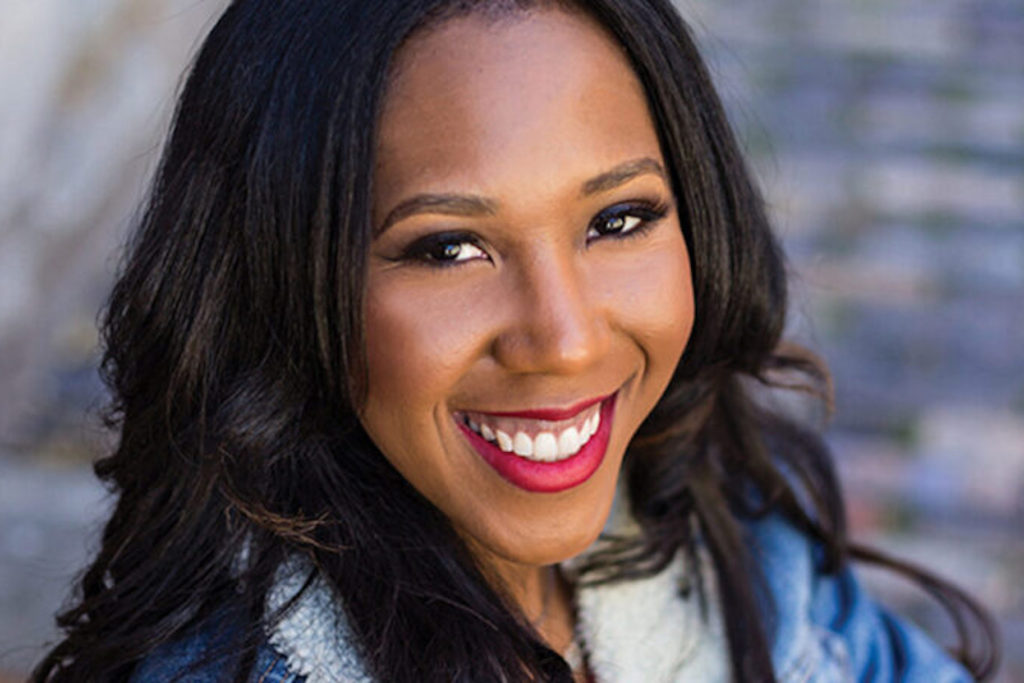Shifting careers especially in the midst of the pandemic can be an incredible challenge, but for master’s student Alicia Miller, nothing is more important to her than working on innovative ways to promote healthy aging.
Miller, who has always considered nutrition and health as cornerstones of her life’s foundation, is now pursuing her online Master of Science in Nutrition, Healthspan and Longevity at the USC Leonard Davis School of Gerontology.
Miller first worked sales and merchandising in a highly competitive business environment before pivoting to her true passion for nutrition and dietetics in 2016. She is especially interested in eating habits and understanding their relationship to healthy aging. By studying the perspectives of older adults, Miller finds that longevity and healthspan are often closely related to the food choices we make everyday, especially for children.
“When you think about the nutritional patterns of older adults that lend to healthy aging, you will recognize that these patterns start far before an individual becomes what would be considered an ‘older adult,’” Miller said. “Because of that, I have decided to focus my work and future practice on pediatric and family-centered nutrition as the habits that one develops early in life may significantly impact the healthspan throughout the course of their life and as a person ages.”
Miller is currently taking classes remotely from Oahu, Hawaii while her husband serves in the U.S. Air Force; she aims to return to Los Angeles this summer. She emphasized the conversations with her preceptors in various rotations, challenging themselves to get creative on how to efficiently provide services and education despite the constraints placed by the pandemic.
“The pandemic has forced us to be more forward thinking and figure out ways to evolve and adapt our practices so that we are in a position to have a wider reach and thus wider impact on public health,” she said.
Now, as an aspiring registered dietitian, the Los Angeles native plans on working with women and children in underrepresented and underserved communities. As a student, she has also found inspiration through Assistant Professor and Edward L. Schneider Chair in Gerontology Reginald Tucker-Seeley, whose research lab focuses on health disparities and its implications with race/ethnicity, socioeconomic status, and financial hardship.
Additionally, Miller spoke highly of former lecturer and current Nutrition Discipline Director at Children’s Hospital Los Angeles Hope Wills, a part-time lecturer at the Keck School of Medicine of USC, who combines her passion for nutrition with research on high risk infants and their mothers, advocating on behalf of children with special needs and mothers in underserved populations.
“All of my professors have played an integral role in contributing to my experience thus far, but I have been most impacted by seeing and interacting with faculty that look like me. I am the only Black student in my cohort, so seeing individuals like Hope Wills and Reginald Tucker-Seeley has helped to keep me motivated,” Miller said. “Representation matters for students of color and seeing reflections of ourselves in those who guide us down our academic paths matters.”
USC researchers discovered how already existing nutritional disparities seemed to widen with the pandemic, with over 39.5 percent of low-income households having some sort of food insecurity between April and May 2020. Additionally, Black and Latinx communities were shown to have experienced unequal access and structural racism as it pertained to resource allocation during the pandemic.
Geared towards success in bridging that divide, Miller finds excitement in the prospect of endeavoring on this new career path, now digging deeper in her true passions when looking at nutrition. Specifically, she wants to “provide a family-centered approach to health and nutrition, particularly for marginalized populations and individuals of color.”
Learn more about the online Master of Science in Nutrition, Healthspan and Longevity program.


